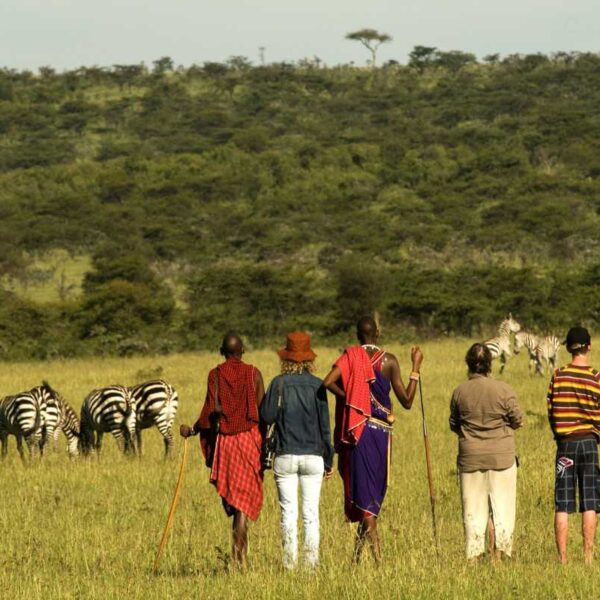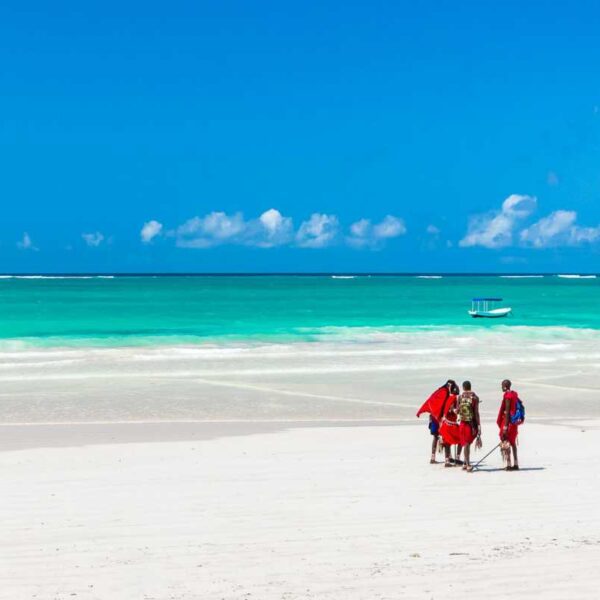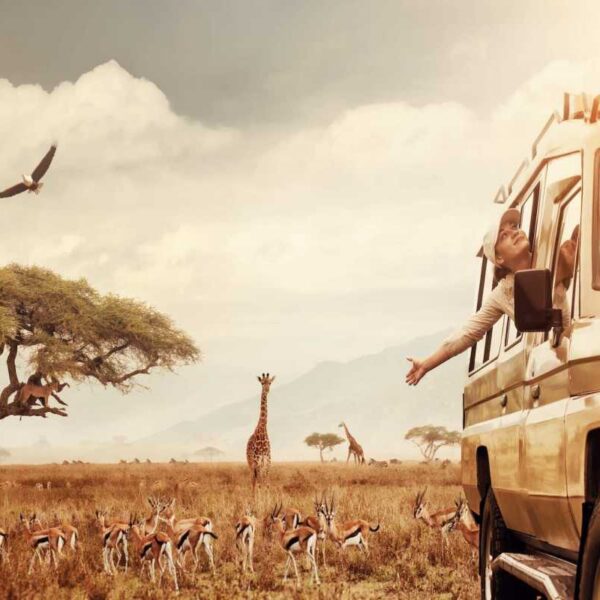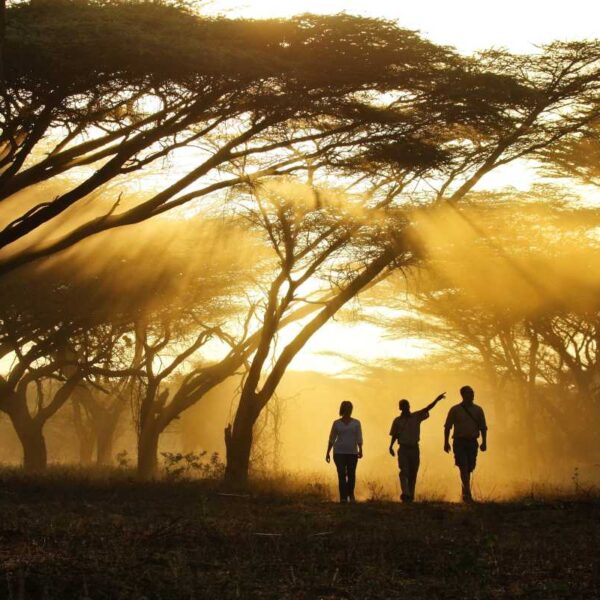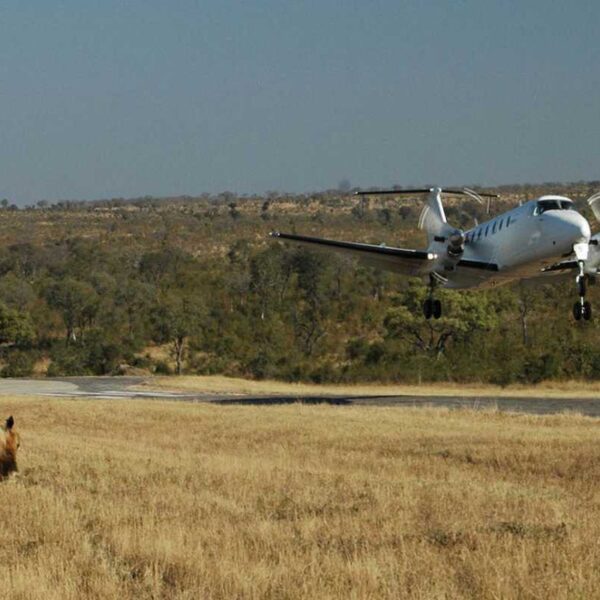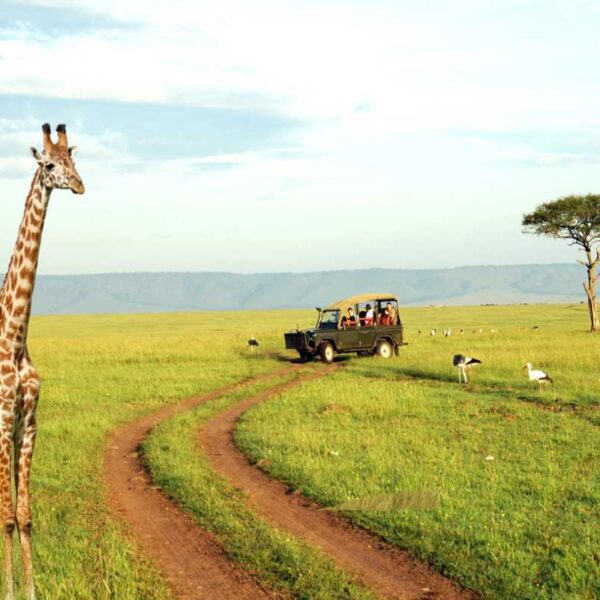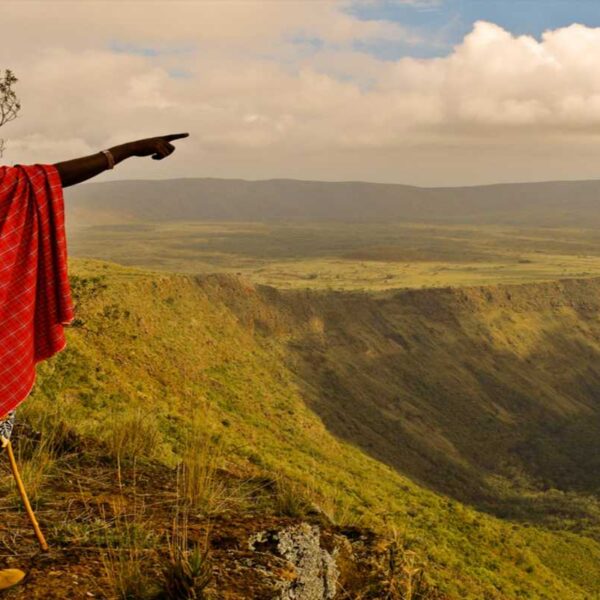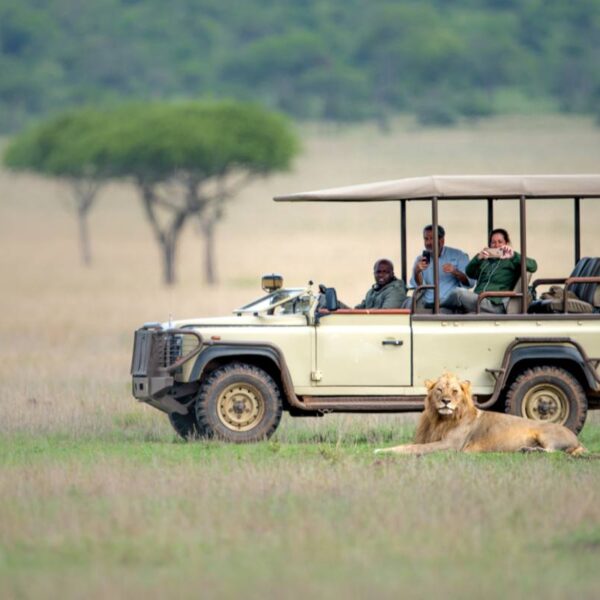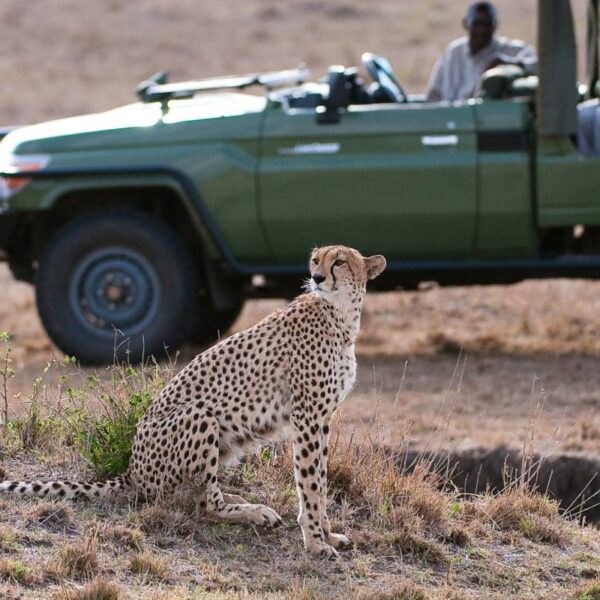Don’t be put off by its intimidating name: you’ll be led into Bwindi by naturalist guides and trackers and the reward is worth the effort – this majestic forest is where to go in Uganda for your gorilla trekking experience. Spend an hour with a gorilla family, observing these gentle giants in their pristine rainforest habitat before slipping away and back to your comfortable jungle lodge. A gorilla trek is wet, humid, muddy and tough but the experience is absolutely extraordinary.
Where to Go in Uganda
For a small, landlocked country of which almost 25% is lakes and rivers, Uganda certainly packs in the places of interest. Mountainous, forested Bwindi National Park is where to go in Uganda for gorilla treks but the country is also home to large savannah reserves, lowland rainforests and enchanting lakes which – in combination – make for one of the biggest wildlife experiences in Africa.
Kampala: capital city & gateway to Uganda
A typical African capital with a compact, high-rise centre surrounded by sprawling suburbs, busy Kampala is Uganda’s commercial, political and logistical hub but also one of East Africa’s most laid-back and friendly cities.
Uganda’s only international airport is set next to Lake Victoria in Entebbe 35kms away. This small town serves as the country’s main entry and exit point and many visitors will spend a night here or in Kampala before and after their Uganda safari.
Bwindi Impenetrable Forest: gorilla trekking & rainforest wildlife
Murchison Falls National Park: game viewing, river cruises & birding
With the Nile River neatly bisecting Uganda’s largest park, you’d expect a wide range of animals at Murchison Falls and you’d be right. It’s where to go in Uganda for classic big game species such as elephant, buffalo, lion and hippo and with a bird count of nearly 500, Murchison Falls also boasts chimpanzees and colobus monkeys in its forests.
The piece de resistance however is a boat cruise to the spectacular falls themselves where the thundering Nile is squeezed through a 7-metre cleft in the Rift Valley Escarpment.
Queen Elizabeth National Park: birding, game viewing, chimps & river cruises
Combining easily with Bwindi Forest, Queen Elizabeth National Park is Uganda’s most popular and most accessible savannah reserve and is home to elephant, buffalo, leopard, numerous antelope species and the famous tree-climbing lions of the Ishasha Plains.
Take a boat cruise on the Kazinga Channel to spot hippo and crocodile and don’t forget your binoculars: with a staggering 600 recorded bird species, Queen Elizabeth NP is one of the world’s premier bird watching destinations.
Bwindi Impenetrable Forest: gorilla trekking & rainforest wildlife
Don’t be put off by its intimidating name: you’ll be led into Bwindi by naturalist guides and trackers and the reward is worth the effort – this majestic forest is where to go in Uganda for your gorilla trekking experience. Spend an hour with a gorilla family, observing these gentle giants in their pristine rainforest habitat before slipping away and back to your comfortable jungle lodge. A gorilla trek is wet, humid, muddy and tough but the experience is absolutely extraordinary.
Murchison Falls National Park: game viewing, river cruises & birding
With the Nile River neatly bisecting Uganda’s largest park, you’d expect a wide range of animals at Murchison Falls and you’d be right. It’s where to go in Uganda for classic big game species such as elephant, buffalo, lion and hippo and with a bird count of nearly 500, Murchison Falls also boasts chimpanzees and colobus monkeys in its forests.
The piece de resistance however is a boat cruise to the spectacular falls themselves where the thundering Nile is squeezed through a 7-metre cleft in the Rift Valley Escarpment.
Queen Elizabeth National Park: birding, game viewing, chimps & river cruises
Combining easily with Bwindi Forest, Queen Elizabeth National Park is Uganda’s most popular and most accessible savannah reserve and is home to elephant, buffalo, leopard, numerous antelope species and the famous tree-climbing lions of the Ishasha Plains.
Take a boat cruise on the Kazinga Channel to spot hippo and crocodile and don’t forget your binoculars: with a staggering 600 recorded bird species, Queen Elizabeth NP is one of the world’s premier bird watching destinations.
Kibale Forest National Park: primates, birds & butterflies
Rapidly becoming a must-do destination in Uganda, Kibale Forest offers visitors an accessible and enlightening insight into life in a tropical rainforest. Large mammals aren’t so easily seen but the clouds of dazzling butterflies and gorgeous forest birds more than make up for it, and besides, Kibale is most famous for its primates. Go on guided chimpanzee treks in the majestic forest and see how many of the other 12 primate species you can spot.
As one of Uganda’s wildlife gems, Kibale is a top priority for visitors wanting to trek gorillas and chimpanzees during the dry seasons, which are generally from November to February, and in June and September (the rainy seasons are March to May, and September to November). While searching for habituated chimps and gorillas, you could also discover other primates like red colobus, black-and-white colobus, potto, blue monkeys, olive baboons and rare L’Hoest’s monkeys.
There is plenty of other wildlife about, thanks to the contiguous wildlife corridor with Queen Elizabeth National Park. Elephants, bush pigs and antelope as well as predators like lions, serval, leopards and African golden cats are all found here. The 351 recorded tree species make for a diverse, lush and gorgeous backdrop.
Birders will revel in the 325 recorded bird species that include the yellow-rumped tinker, African grey parrot and the endemic ground thrush. The park’s community runs the famous Bigodi Swamp Walk, where an impressive 325 bird species have been counted.
Lake Mburo National Park: serene game viewing & birding
Halfway between Uganda’s capital and entry point Kampala and the gorilla trekking forests of the south-west lies Lake Mburo, a perfect overnight stop-over for travellers making their way between the two destinations.
Although the heavyweights such as elephant are missing, the great mix of wetland and woodland habitats makes for a wide range of mammals and birds and Mburo’s tranquil atmosphere and soothing views provide welcome relief after a tough journey.

